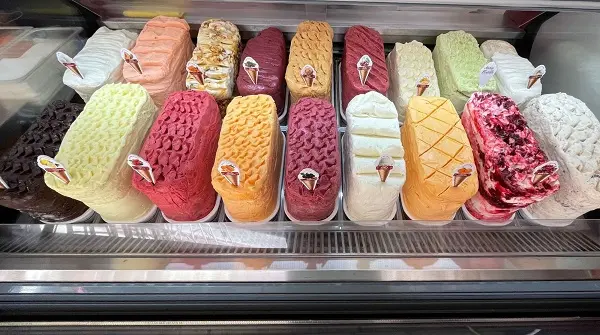Unilever is revolutionizing its ice cream sales strategy with the integration of AI technology into its freezer cabinets. The company has deployed nearly 3 million ice cream freezers in various retail locations worldwide. Out of these, approximately 100,000 are now equipped with AI technology, with plans to increase this number to 350,000 by the end of 2025.
Each AI-enabled freezer is equipped with software that periodically photographs the ice cream stock inside. These images are automatically uploaded to the cloud, where AI algorithms analyze them to identify Unilever’s ice cream brands, assess stock levels, and generate orders for distributors based on real-time data.
Sarosh Hussain, Head of Digital Selling Systems for Ice Cream at Unilever, likens the system to having “two eyes” monitoring stock daily. This technology ensures that distributors receive precise stock data, allowing for more accurate and timely replenishment requests from retail outlets.
The introduction of AI has already led to noticeable improvements in sales and order fulfillment. Sarosh reports a significant increase in retail orders due to AI-generated data, with growth ranging from 8% in Turkey to 12% in the US, and up to 30% in Denmark.
See Also: Is yogurt healthy?
In Hungary, where nearly 10% of the freezer fleet has been upgraded with AI this summer, Unilever has also integrated the AI system with distributor operations. Distributors now receive not only regular ice cream orders but also AI-driven recommendations based on current stock levels.
This integration has been well received by both distributors and retailers. Currently, around 5% of orders are generated through AI system recommendations, reflecting positive feedback and increased efficiency in order management.
AI technology is also enhancing distribution efficiency. With accurate data on customer demand, distributors can optimize delivery routes and reduce costs. Sarosh notes that a better understanding of customer needs allows for more effective planning and resource allocation.
Moreover, the data collected from AI-enabled freezers provides valuable insights into the performance of new products and marketing campaigns. By analyzing this data, Unilever can evaluate the impact of promotional activities on freezer sales and adjust marketing strategies accordingly.
Sarosh emphasizes that this data-driven approach will help Unilever assess whether new products are complementing or cannibalizing existing offerings, enabling more informed decisions about promotion planning and future forecasts.


